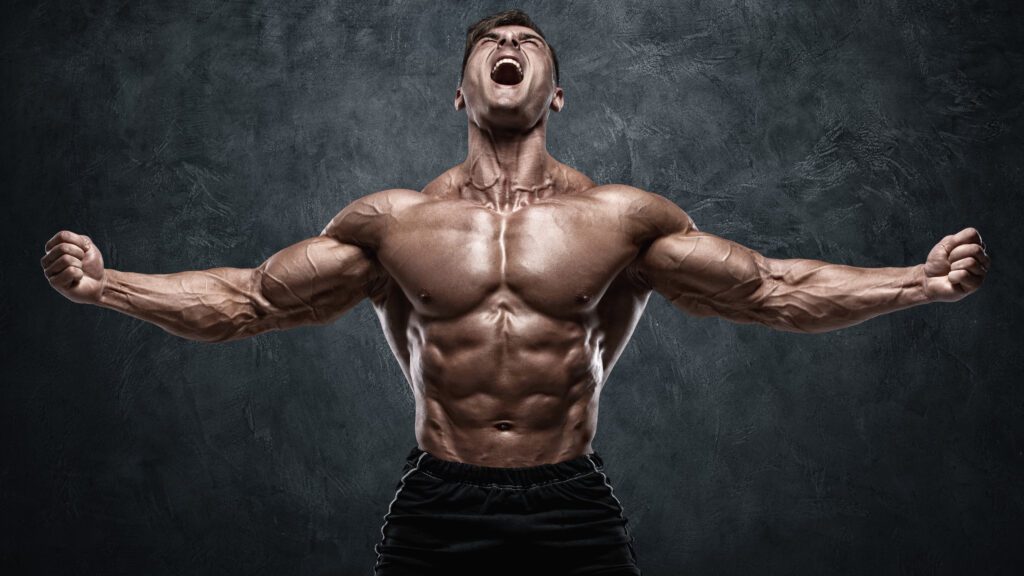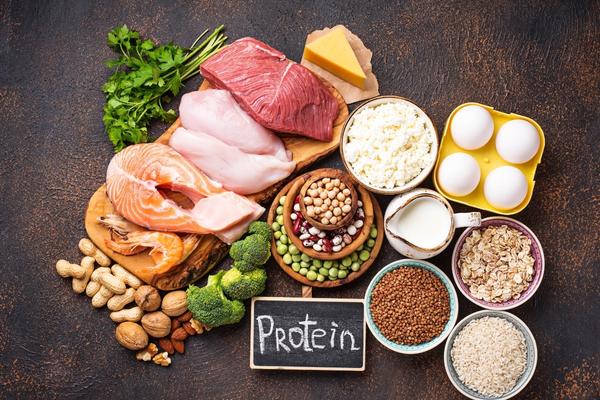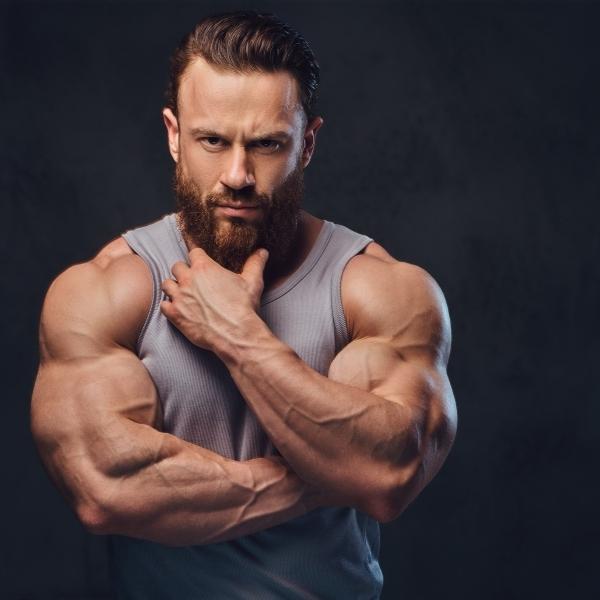Are you curious about anabolic Hormones and how they naturally help you build muscles? The way hormones cause muscle growth is a complicated subject.
There are many different types of Hormones, each affecting the body differently. But you can’t build muscle naturally without them. Hormones are the eyes and ears of every cell in the body. They tell the other cells what is happening and how to respond.
Many hormones are in the body for bodybuilding; they break down into anabolic and catabolic hormones. The anabolic hormones build while the catabolic ones break down tissue. This article will focus on three main anabolic hormones: testosterone, insulin-like growth factors (IGFs), and human growth hormone (HGH).

HOW DO HORMONES CAUSE MUSCLE GROWTH?
Proteins are the building blocks of muscle. The more protein you eat, the more protein to build muscle. This is why getting enough protein in your diet is essential if you want to pack on mass. Hormones like testosterone and growth hormone determine how much protein gets used for muscle building.
Still, it’s important to remember that hormones are not the only factor in building muscle. We also need enough calories and nutrients from other sources. While protein is the primary ingredient for building muscle, vitamins and nutrients are also needed.
ANABOLIC HORMONES THAT CAUSE MUSCLE GROWTH
Several anabolic hormones affect muscle growth, including testosterone, insulin and its derivatives (insulin-like growth factors), and growth hormones. Each of these hormones has its unique mechanism for facilitating muscle growth. However, it is essential to note that not all of these hormones need to be elevated for you to experience significant gains in lean body mass.
1. TESTOSTERONE
Testosterone is the primary male sex hormone. It’s responsible for the growth of male sex characteristics, such as increased muscle mass, bone density, and strength. Testosterone also helps maintain the libido in men.
Testosterone levels naturally decrease as you age—the average level for a man ranges from 264 – 916 ng/dl (nanograms per deciliter). But a man can experience lower levels or higher levels. Older men who experience low-level testosterone tend to use hormone therapy.
2. HUMAN GROWTH HORMONE
Human growth hormone is a hormone that’s released from the pituitary gland during sleep, exercise, fasting, and stress. It’s also released as part of the immune system response to illness or injury (called the acute phase response).
Growth hormone has been shown to boost muscle protein synthesis in skeletal muscle, which means more muscle growth for you!
3. INSULIN
Insulin is a hormone that helps to move glucose from the blood into cells. After you eat, your pancreas releases insulin in response. Insulin’s primary function is to help absorb glucose—the body’s primary energy source—into muscle cells. The more active you are, the more glucose you need for energy production and storage in muscle tissue.
The body releases insulin when it detects high blood sugar levels after meals. Helping move that extra glucose out of circulation and into storage as glycogen (glycogen stores are found chiefly in muscles). When those stores get low enough. Your body will start breaking down existing muscle tissue for its own fuel needs, so it’s important not to skip meals!
In addition to helping convert food into energy, insulin has many other functions within the body. Including regulating metabolism by controlling how much fat or carbohydrate we store, affecting organ growth; influencing bone formation; promoting healing processes; and regulating sex drive.
4. INSULIN-LIKE GROWTH FACTORS
Insulin-like growth factor (IGF) is a protein that functions in the body to stimulate growth. It comprises two distinct proteins: IGF-1, produced primarily in the liver, and IGF-2, found primarily in the gut and skeletal muscle.
When you exercise, your muscle cells are broken down during exercise. This response will be more pronounced the harder you work out because more damage is done to your muscles, increasing the need for recovery.
Insulin-like Growth Factor 1 (IGF1) has been shown to have anabolic effects on muscles by increasing protein synthesis while reducing proteolysis (protein breakdown).
HOW TO ENSURE YOUR HORMONES AREN’T SLOWING MUSCLE GAINS
The first step to ensure your hormones aren’t slowing your muscle growth is checking your diet. If you’re not eating enough calories to support a weightlifting lifestyle, it’s possible that this could cause poor muscle gain.
If your diet is on point, then the next step is to look at regular exercise and sleep habits. Getting enough rest so your body can recover from training sessions is essential, which means getting eight hours per night (but if it’s more than that for some people). Arnold Schwarzenegger stated he used 6 hours of sleep to build his Mr. Olympia body.
Many people don’t realize how much stress affects the body—stress hormones like cortisol can cause muscle loss. Try finding ways to reduce stress: take meditation or yoga classes. Find hobbies outside of working out; set aside time each day for yourself with nothing but fun things planned (like reading books or watching movies). And learn how to manage any anxiety or depression issues.

HORMONE DIET TIPS
If you’re serious about getting your hormones to work in your favor and building muscle, eat the right diet. It’s that simple. This doesn’t imply that you should deprive yourself of food or avoid certain types of food.
Instead, the secret is eating a balanced diet from real foods that contain nutrients that support anabolic hormones such as omega-three fatty acids, potassium, zinc, and protein. Food can also be used to slow the production of catabolic hormones.
Also, use exercise to increase anabolic hormones. Compound movements like the squat and deadlift have been shown to increase anabolic hormones and help you synthesize protein better. Resistance training, when done correctly, causes your body to break down muscle and rebuild it bigger and stronger than before.
SEE MORE: Hormone Weight Loss Solution
HORMONE PRODUCTION TIPS
- Refrain from processed carbs and sugar: Process foods are unnatural, so your body does not understand them. Processed foods come with chemicals that can negatively impact hormones. Avoid white bread, junk food, and soda to support your hormones.
- Consume extra protein: To increase testosterone levels, consume enough protein because it is necessary for building muscle. Aim for a minimum of 1 gram per pound of body weight, for instance. A daily requirement of 150 grams of protein for a 150-pound guy (or over 10 ounces). Salmon, eggs, beef, asparagus, bison, chicken, and green leafy vegetables contain nutrients that help balance your hormones. Eat at least three cups of vegetables daily! More veggies mean better health overall, not just better sex drive.
- Get enough sleep: It’s essential for optimal performance when working out or playing sports and helps with stress management.
THE LAST WORD ON ANABOLIC HORMONES AND THE ROLE THEY PLAY IN MUSCLE GROWTH
Eating well and exercising frequently is the best way to ensure your hormones aren’t slowing your muscle growth. You’ll have the energy you need for exercise and keep your body in top condition, which will help it build muscle more quickly.
The best way to increase anabolic hormones and see greater results is to eat the right foods and perform resistance training exercises. Your hormones are the eyes and ears of your cells. They help your body to respond to the world around you. You can talk to your body through the foods you eat and the exercises you perform. By eating the right nutrients and performing compound lifts, you tell your body to build muscle.
Out of the three major macros, only protein can build muscle while the other provides the body with energy. But for the body to synthesize protein, the right hormones and nutrients must be present. Also, exercise causes the body to synthesize more protein.
What do you think? Please share your response in the comments so others can benefit from your experience.




